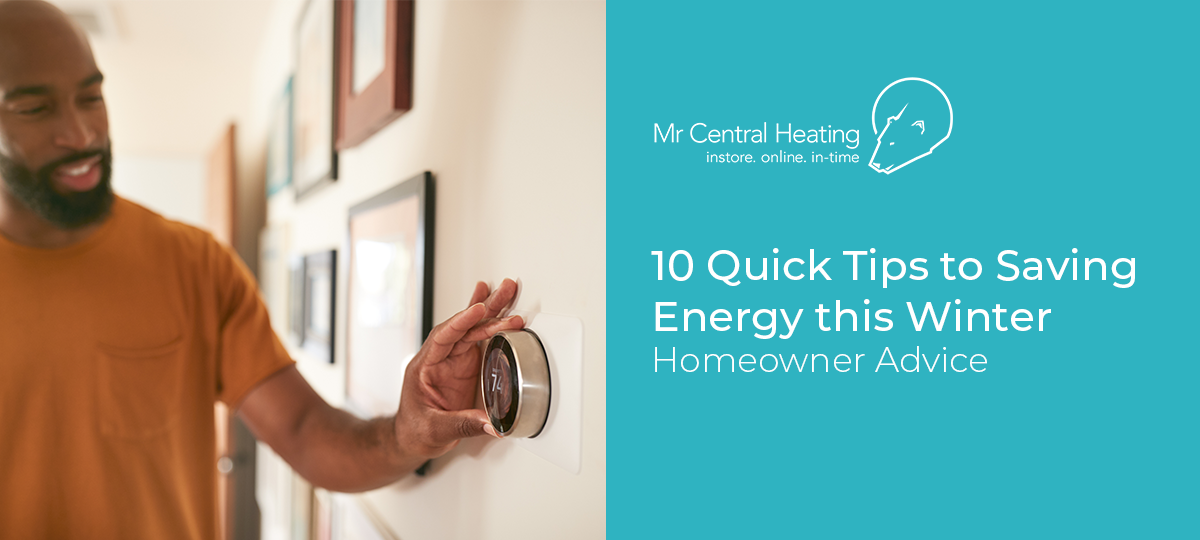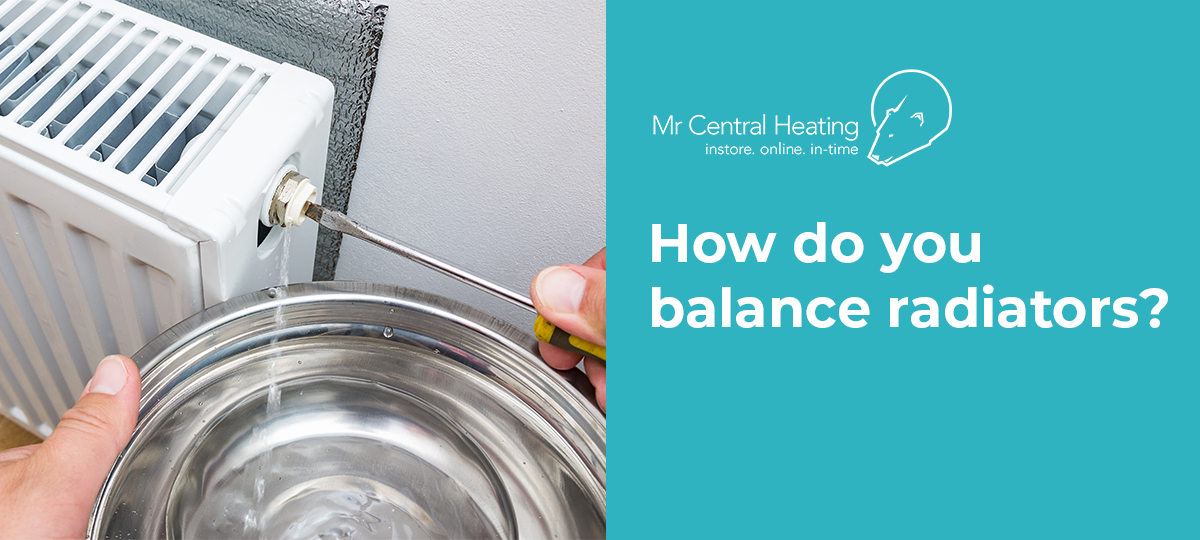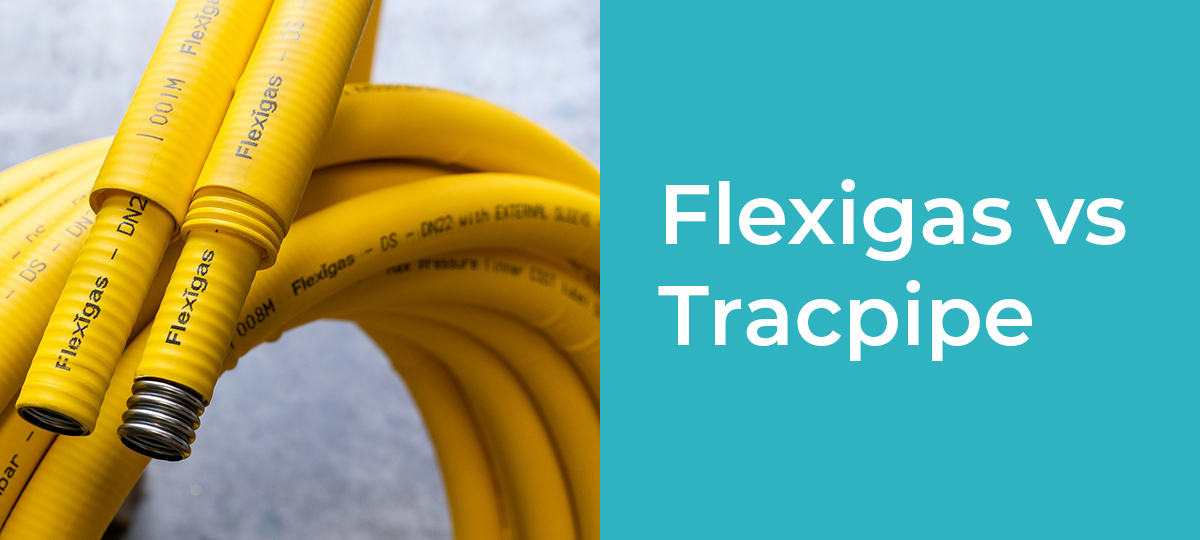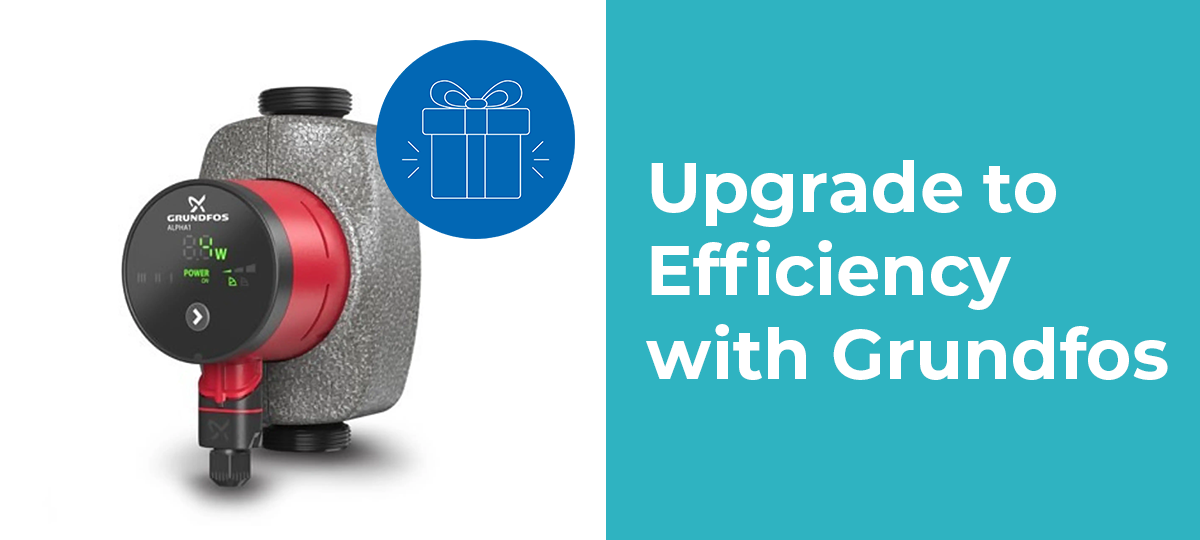10 quick tips to saving energy this winter
With energy bills continuing to rise, we’ve come up with 10 quick energy saving tips to help you keep your bills manageable this winter. Reducing energy wastage is a good place to start. Take a sweep of your home and see where you can find some savings. If you are struggling, here are some quick & easy wins that you can start today.

-
Turn off standby
You can save around £65 a year just by turning your electrical appliances off at the plug. It may seem like a little thing but leaving multiple appliances on standby can really add up on your energy bill. Almost all modern appliances can be turned off without losing settings or programming. Turning off appliances that you are not using will go a long way.
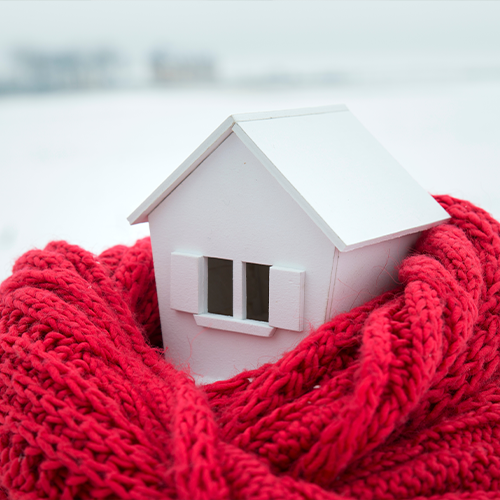
-
Draft proof windows and doors
This is particularly useful in older homes or a home with single glazed windows. There are many steps you can take to draft proof your home. Heat tends to escape around the doors, windows, gaps in the floor, skirting boards loft hatches and through vents and chimneys. A quick win could be adding thermal curtains and blinds. There is also weatherstripping tape that can be applied in certain areas of the home which can also help you save energy. All of these provide a much-needed barrier from the outside and can help reduce the houses carbon footprint. Another simple low-cost solution is to use draught excluders in doorways which can help with basic draught proofing.
-
Top up insulation
Unless you have recently had your insulation done, it might be an idea to top it up or even upgrade it if you can. This isn’t just the insulation in the loft. This includes insulation around your hot water cylinder too (if you have one) and it might also be an idea to get some insulation sheets behind your radiators too. This will bounce heat back into the room resulting in less heat escaping. Cavity wall insulation might be an option in some homes - but is not always suitable.
-
Change your bathroom habits
Making the swap from baths to showers can help reduce both the water you are using and the energy it takes to heat it. Turning the running tap off whilst brushing your teeth can also help reduce water wastage. Another step to take is to reduce the time you spend in the shower. Even one minute less spent in the shower can save you a decent amount of water and energy. To save additional money on your water bills you could consider an energy efficient shower head.

-
Turn off the lights when you leave a room
Another simple enough task but a good habit to get into. Turning the light off when you leave the room can typically help you save around £25 a year by reducing energy use. That might not seem a lot in the grand scheme of things, but every little helps. And, you could save even more by swapping to LED lightbulbs and energy saving bulbs. *If you set out to use less energy and use energy more conservatively then you will become more aware of the energy and money you are wasting. With the current cost of energy prices this has become an even bigger priority for a lot of homeowners. * move this somewhere sensible
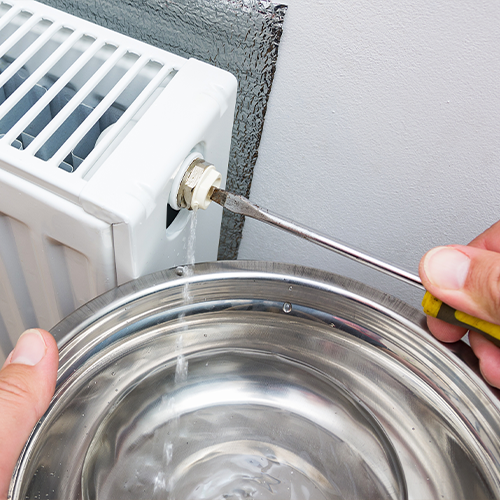
-
Bleed your radiators
To ensure you are getting the most out of your heating, we recommend bleeding your radiators annually. This will ensure they are working at maximum efficiency. The bleeding process removes pockets of air allowing heat to flow more easily and means your radiators will heat up more quickly. We’ve got a step-by-step guide to bleeding your radiator which you can find here. We also recommend using cleaner and protection chemicals to ensure your radiators work efficiently for longer. If you don’t have thermostatic radiator valves (TRVs) fitted on your radiators it might be worth considering.
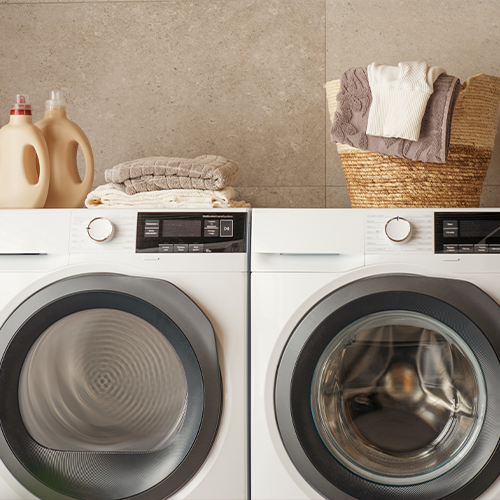
-
Be laundry savvy
Some instant wins can be had when you consider the way you use your washing machine and tumble dryer. Wash on a 30-degree cycle. Use eco mode (if your machine has it) as this is more energy efficient. And only wash when you have a full load. Try to avoid washing with just a half load. These are just a few things you can do to make a big change. Reducing your weekly washing loads by just one can save you around £34 a year on your electricity bill. If you have some small bits that need doing, why not hand wash them? Whilst it is incredibly convenient to use your tumble dryer during the winter, why not hang the odd load outside (weather permitting of course!)? If the weather isn’t too great, you could try an indoors clothes horse. As tumble dryers are one of the most expensive appliances in the house, not using it could save you around £70 a year as you’ll use a lot less electricity.
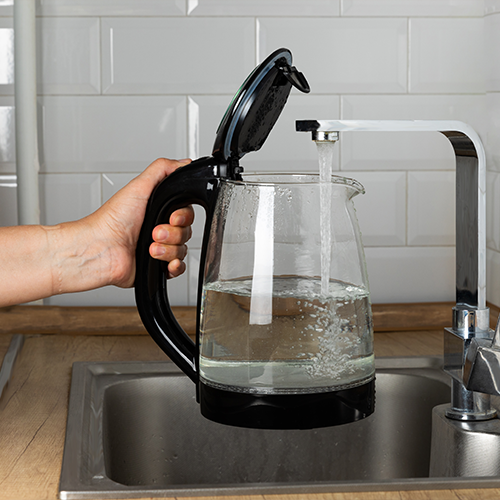
-
In the kitchen
There are lots of little things you can do to conserve energy in the kitchen. It seems like a silly thing to consider but did you know over filling the kettle could be costing you around £13 per year? If its tea for one, it’s best to only have enough water for the one cuppa. You could also save a few quid by using the microwave or air fryer instead of the oven now and then. If you haven’t done it in a while, you can defrost your freezer or clean your oven to improve energy efficiency. Maintenance of your kitchen appliances is key to ensuring they are running optimally but always remember to be save around the electrics. And don’t forget to ensure you have a full load for the dishwasher before you put it on a cycle. If you need to do a little bit of washing up, you could use a bowl in the sink rather than leaving the tap running.
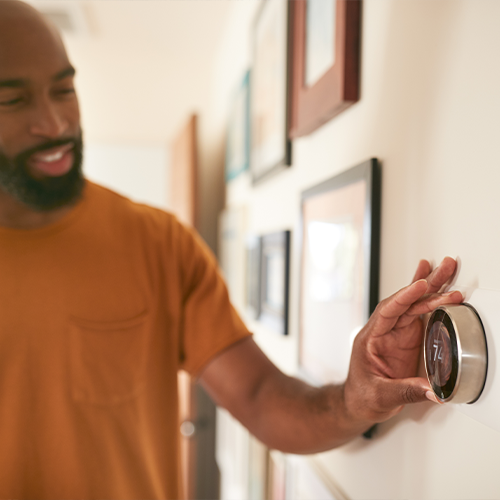
-
Turn your thermostat down by 1-degree
Another easy win here. According to British Gas, turning down the thermostat by 1-degree can save up around £115 a year for the average household. It is such a small difference in temperature that you shouldn’t notice the lower temperature and if you do, you can always add another blanket/pop a jumper on etc. to ensure you’re getting the most out of this saving. Getting a room thermostat or smart thermostat can be a good investment as you can control your heating more effectively and this can also save you money in the long term.
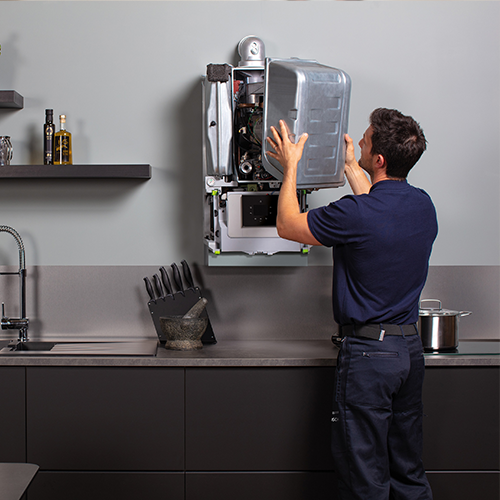
-
Regular central heating service and maintenance.
Okay, we know we’ve mentioned bleeding your radiators already, but the rest of your central heating system is equally important. Getting your annual service done on your boiler and doing regular checks for leaks or issues is a great way to catch a problem early to reduce the impact and cost of repair later on down the line. Regular maintenance also ensures your central heating system is running efficiently and not costing you more money than it needs to on your heating bills from your energy supplier. Modern energy efficient appliances such as boilers can help save you money in the long term but only if they are running correctly. So, it is worth the investment if you have the ability to upgrade.
There are plenty of ways to bring down the cost of your energy bills. Some may work better for others and that is okay. Some may seem like common sense, whilst others you may not have considered before. The best thing to do is what works for you and your family.
If you are struggling, there are many places you can contact for help and advice. Why not check out these to get you started:









